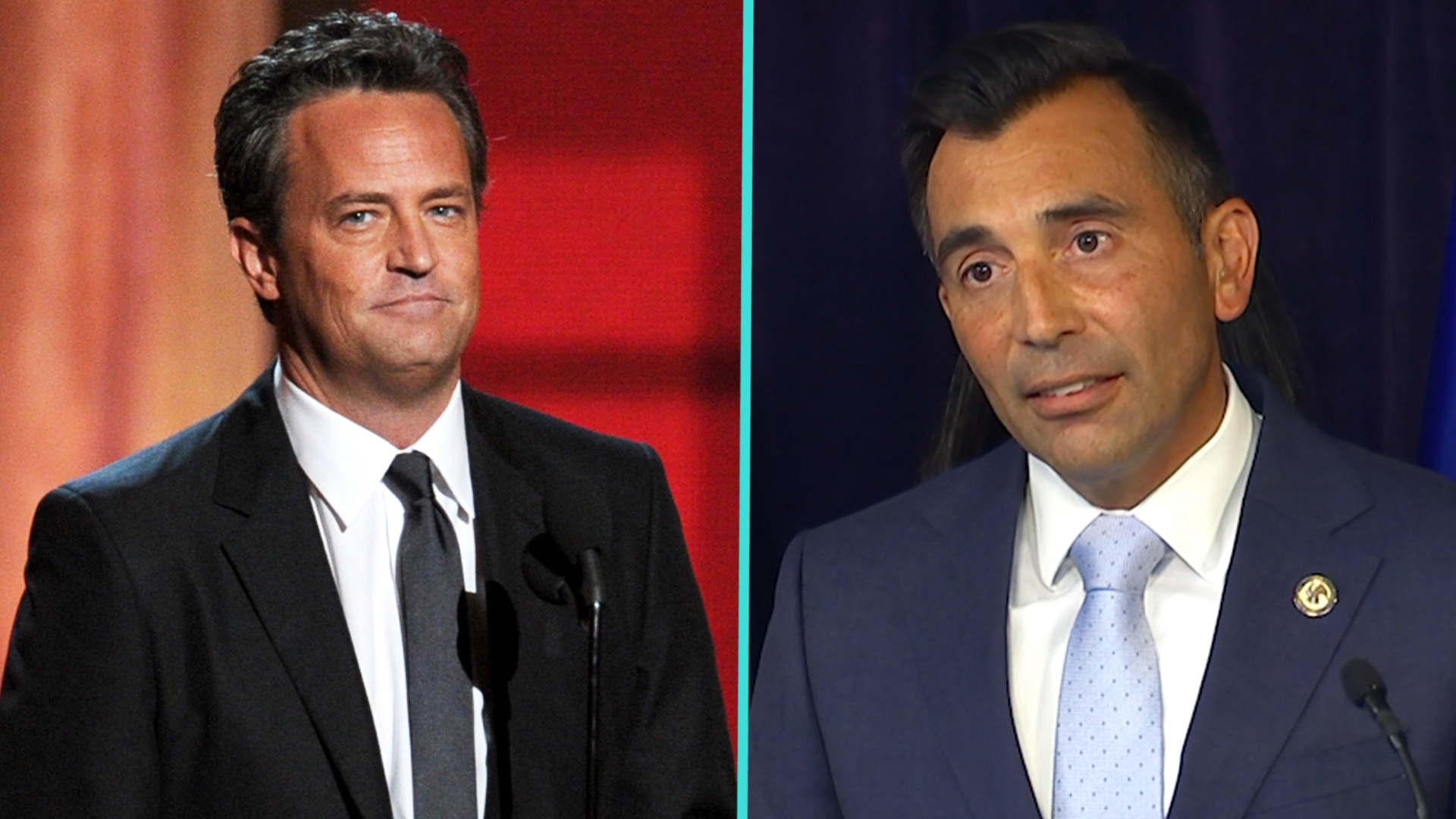“Friends” actor Matthew Perry was experiencing an out-of-control ketamine addiction, injecting the drug six to eight times a day before his accidental overdose death, prosecutors say.
Five people have been charged in connection to Perry’s death, including the actor’s personal assistant, Kenneth Iwamasa, and one of those accused of providing the drug, Dr. Salvador Plasencia.
In court documents filed Thursday, federal prosecutors accuse Plasencia of telling a patient that Perry was “too far gone and spiraling in his addiction” the week before he died but that the doctor still offered to sell him ketamine through Iwamasa anyway.
Get top local stories in DFW delivered to you every morning. Sign up for NBC DFW's News Headlines newsletter.
Perry had been undergoing ketamine infusion therapy to treat depression and anxiety, but it was not the supervised therapy doses that killed him. His last session took place more than a week prior to his death.
According to prosecutors, Perry had been seeking out unsupervised doses of the controlled substance and had developed an “out of control” dependence on it. Ketamine, an anesthetic with psychedelic properties, is a popular party drug that has recently been found to be a promising alternative treatment for some mental illnesses but carries serious medical risks.
Perry, 54, was found face down in the heated end of a pool at his Pacific Palisades home on Oct. 28, 2023. When he died, the levels of ketamine in his body were high — equivalent to the amount used for general anesthesia during surgery, according to the Los Angeles County Medical Examiner’s Office.
The actor’s assistant, 59-year-old Iwamasa, pleaded guilty on Aug. 7 to one count of conspiracy to distribute ketamine causing a death and admitted to repeatedly injecting Perry without medical training, according to prosecutors.
The court documents laying out the plea agreement for Iwamasa detail the depths of Perry’s addiction.
Iwamasa allegedly injected Perry on the day of his death at 8:30 a.m. and again time at 12:45 p.m. while Perry was watching a movie, the agreement said.
“Approximately 40 minutes later, Victim M.P. asked defendant to prepare the jacuzzi for Victim M.P. and told defendant, ‘shoot me up with a big one,’ referring to another shot of ketamine,” the document said.
After injecting Perry with the third shot in six hours, Iwamasa went to run errands, the documents state. He found Perry face down in the jacuzzi when he returned to the actor’s home, according to the plea agreement.
Iwamasa told authorities he began injecting Perry roughly a month before his death, after that actor was introduced to Plasencia around Sept. 30, 2023. He alleged that Plasencia sold Perry liquid ketamine as well as ketamine lozenges, according to court documents.
Plasencia, 42, was arrested Thursday in Southern California and charged with one count of conspiracy to distribute ketamine. He pleaded not guilty in court Thursday afternoon. Plasencia’s lawyer did not respond to a request for comment.
Plasencia allegedly taught Iwamasa how to administer the drug through intramuscular injection, according to federal prosecutors, even though the personal assistant had no medical experience or education.
Perry then instructed Iwamasa to stay in touch with Plasencia to purchase more vials. The plea agreement recounts almost daily communications between the doctor and personal assistant to arrange more purchases in the two weeks after.
On Oct. 12, 2023, about two weeks before Perry’s death, the actor had a ketamine infusion with a doctor, but Plasencia was still contacted after the treatment for more, according to prosecutors. Plasencia allegedly agreed to meet at Perry’s home later that day and administered a “large dose of ketamine” to the actor, according to the plea agreement document.
Perry had a bad reaction to that dose, it said. His blood pressure spiked, his body began to “freeze up” and he could not talk or move, prosecutors said. Plasencia allegedly left additional vials of ketamine for Perry at the house, despite Perry’s adverse reaction to the drug.
According to prosecutors, the next day Perry instructed Iwamasa to obtain more ketamine from a different supplier, an acquaintance the assistant had previously gotten into contact with named Erik Fleming.
Fleming, 54, pleaded guilty on Aug. 8 to one count of conspiracy to distribute ketamine and one count of distribution of ketamine resulting in death.
Perry paid Plasencia — through his assistant — at least $55,000 for ketamine in the month before he died, Iwamasa’s plea agreement states. Fleming was paid approximately $12,000 in two separate deals, including one just days before Perry died.
Another doctor was arrested Thursday and charged, and a third person has agreed to plead guilty in connection to the actor’s death.
Perry, who rose to fame on the beloved sitcom series “Friends,” was vocal about his addiction issues in the weeks before his death. He said in a 2022 interview on the “Q with Tom Power” podcast that he can’t watch “Friends” because he can tell by his weight what substance he was abusing: alcohol, opiates or cocaine.
Perry wrote in his memoir that he “should be dead” after years of addiction and that his sobriety gave him purpose.
In 2013, Perry was given the Champion of Recovery award from the White House Office of National Drug Control Policy. That same year, he converted his Malibu residence into a sober-living home that operated for two years.
“I’ve said this for a long time: When I die, I don’t want ‘Friends’ to be the first thing that’s mentioned,” Perry said the year before he died. “I want [helping people] to be the first thing that’s mentioned. And I’m going to live the rest of my life proving that.”
This story first appeared on NBCNews.com. More from NBC News:



